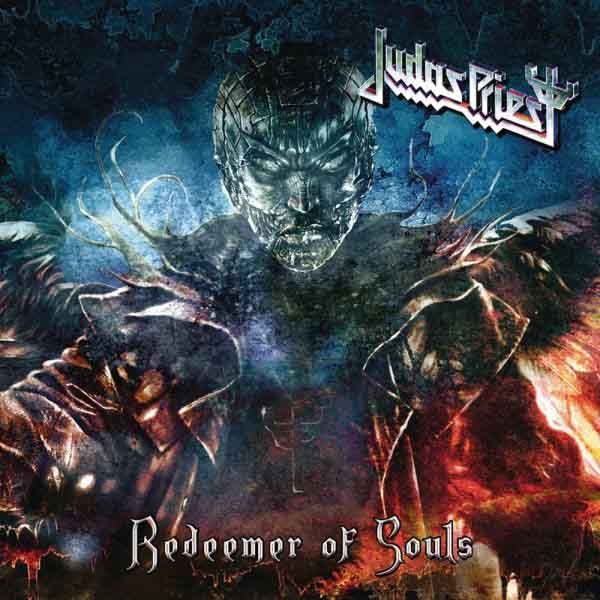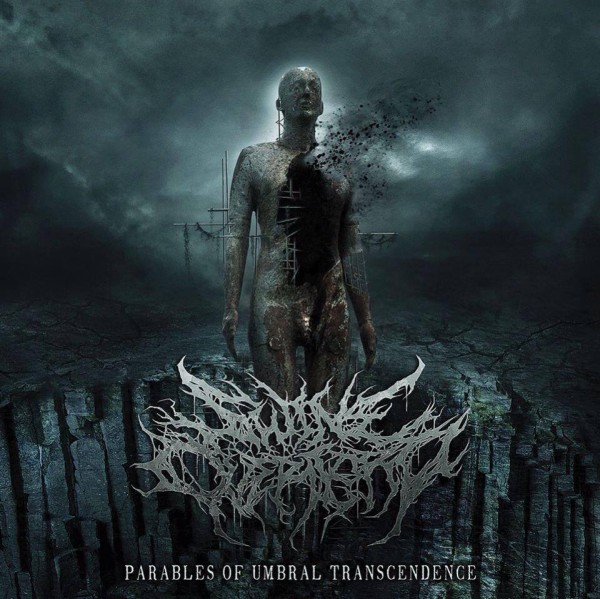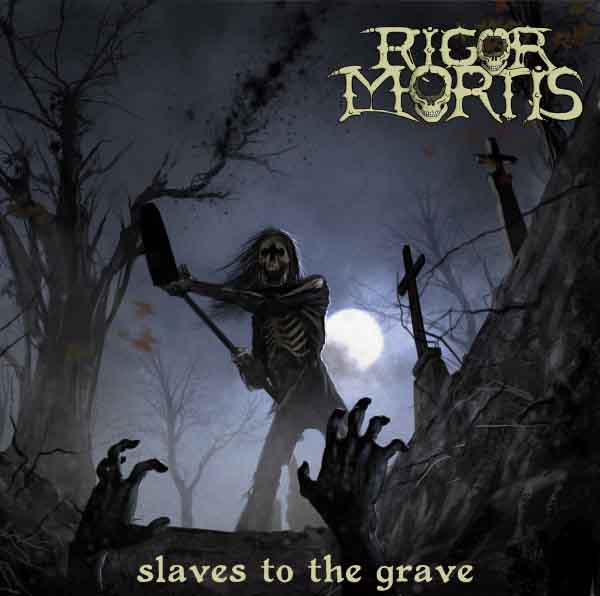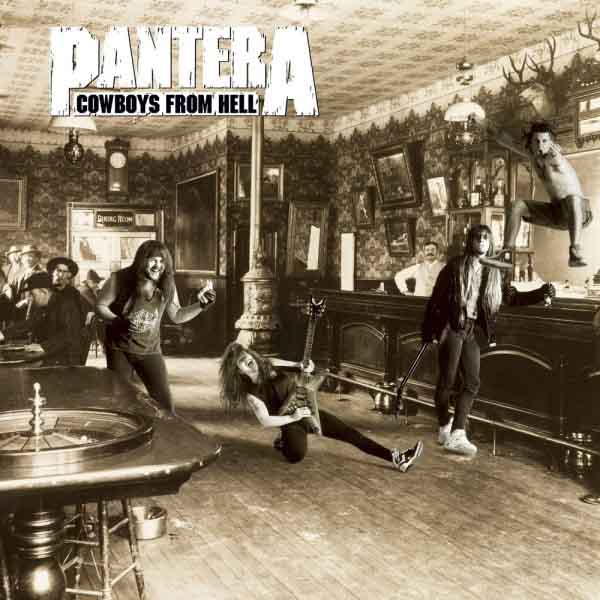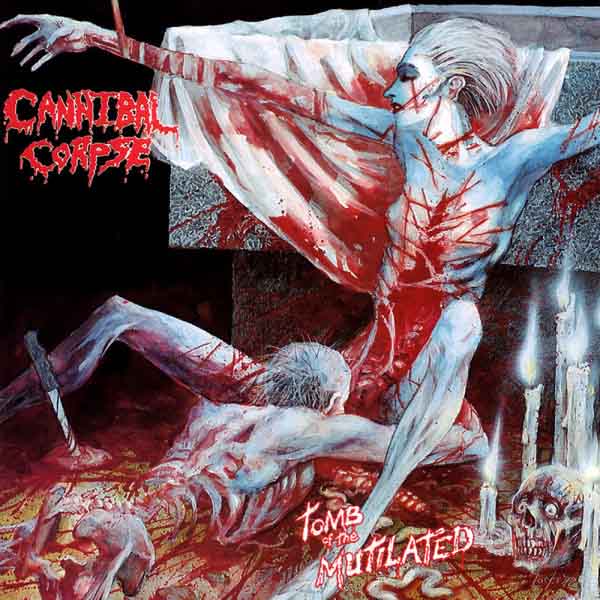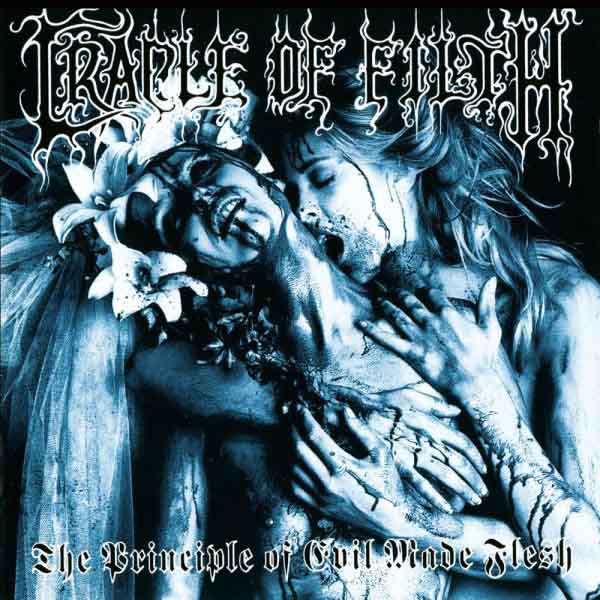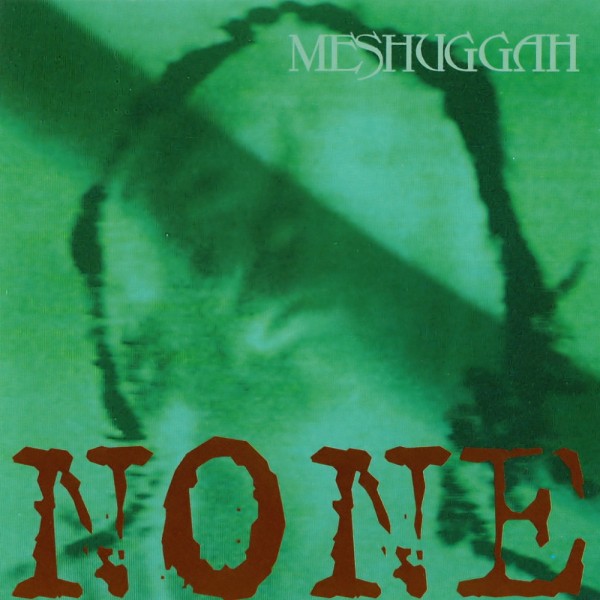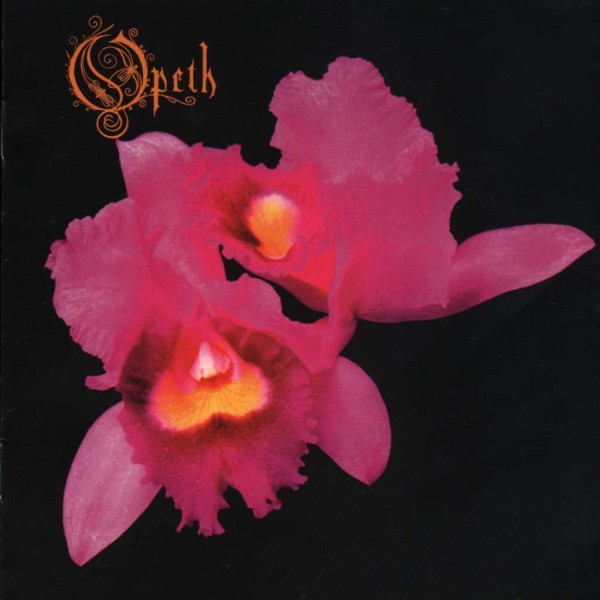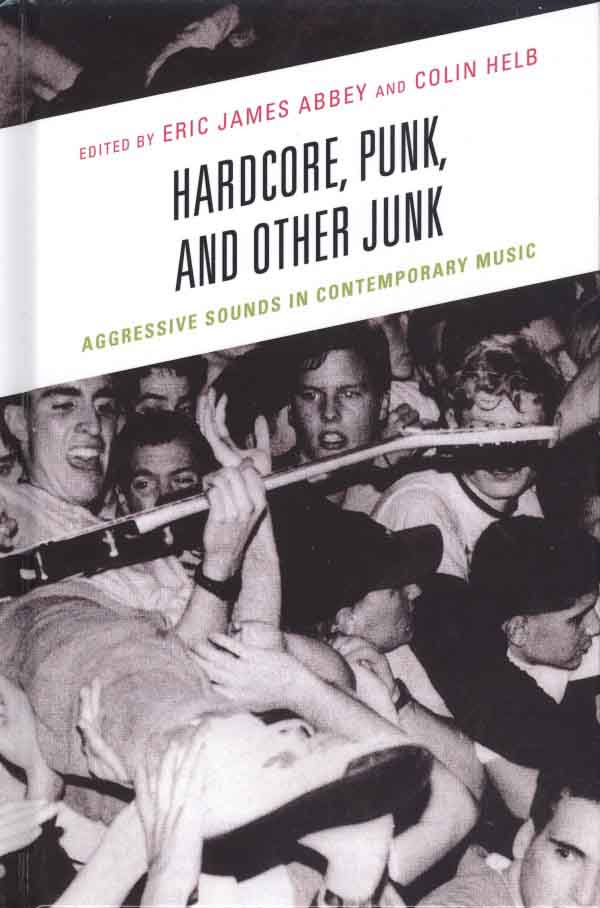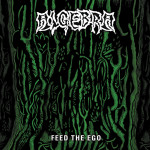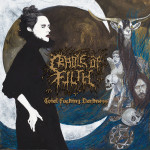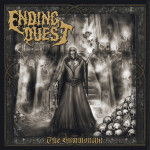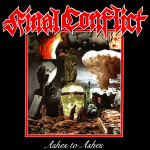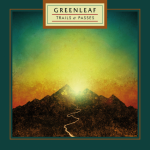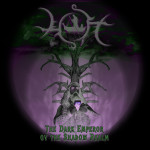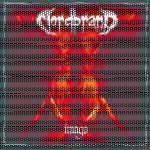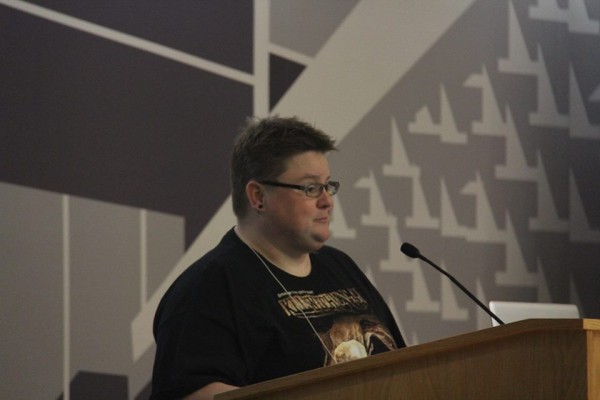
Amber R. Clifford-Napoleone is Associate Professor of Anthropology, and Curator of the McClure Archives and University Museum, at the University of Central Missouri. She specializes in the study of gender and sexuality in music scenes, and also works as in textile curation and preventive conservation.
Dr. Clifford-Napoleone also curates the largest collections of Middle Eastern traditional material culture in America. She is also a lifelong metal fan and one of the founders of the International Society for Metal Music Studies. She lives in rural Missouri with her wife, three dogs, and a very large collection of industrial metal.
We were lucky to get a few words with Dr. Clifford-Napoleone on the topic of metal and its relation to power and her study area of specialty.
You are an anthropologist. What drew you to this discipline?
I got into anthropology as a young child. I used to pretend I was Howard Carter in King Tut’s tomb! I started volunteering at a museum, working for an anthropologist, when I was a freshman in high school. I planned on being an archaeologist, but I didn’t like the excavations as much as the lab work. Then I started working in material culture studies and ethnography, and everything just clicked. I love the way that anthropology teaches us how to be more human, to revel in diversity as our biological imperative, to really see the world for the enormous ball of complexity that it is.
What is the anthropological perspective on heavy metal? Has this been enhanced by your own personal knowledge of and enjoyment of this genre?
Lots of folks might think anthropology and heavy metal is an odd fit, but actually anthropologists have worked on topics in heavy metal for a long time. Jeremy Wallach, one of the founders of metal studies, is a cultural anthropologist working on heavy metal in Indonesia. Sam Dunn, whom I am sure many of your readers know from his films, is an anthropologist from Canada. There are many others. For an anthropologist, all aspects of human life are considered both unique and important. That extends to heavy metal as well, and anthropologists who work on heavy metal topics discuss is cultural, social, artistic and sonic effects in all sorts of ways. As to your second question, the answer is a resounding yes. I tell my own students that they will always be successful if their career engages them in things they are passionate about. I love heavy metal, and my passion for heavy metal is absolutely part of my ability to think, talk and write about metal as an anthropologist.
You’ve got a book coming out in 2014 about queer fans in heavy metal. Can you tell me more about what’s going to be in it?
My book on queer fans (Queerness in Heavy Metal: Metal Bent, to be published by Routledge and released in February 2015) is the result of seven years of work talking to queer fans, and researching the influence of queer performers and lyrics on heavy metal scenes. My book includes a lot of material about the role queerness played, and continues to play, in heavy metal. That includes the information I received from over 500 self-identified queer fans who took my online survey, and dozens that participated in individual interviews with me. I see my work as transdisciplinary- anthropology certainly, but also metal studies, ethnomusicology, cultural studies, gender and sexuality. I’m trying to make the case the metal is inherently a queer institution.
How do you study queer fans of heavy metal? What kind of barriers do you face in trying to contact them, learn about them and so on?
Queer fans of heavy metal are more connected than you might think. There are a handful of active discussion groups, listservs and websites devoted to queer fans of heavy metal, as well as some Facebook groups and blogs. As a queer metal fan myself, I was already a member of a lot of those groups. Once I started posting the link to the survey online, queer fans just sent it out to other lists, groups, and folks that they knew. I’ve also posted it on my blog and website, and always talk about it when I give lectures or papers at conferences. Because my survey is anonymous, queer fans feel pretty comfortable telling me exactly what they think too. I ended up with information from queer fans from six continents and 39 countries.
Rob Halford is generally credited with heavy metal’s imagery of leather clothing, whips, motorcyles and studded leather belts. In one VH1 documentary I watched (yes a very credible source!) one of the pundits credited this imagery to the gay community in London in the 1970s. In your view, is this correct? Has heavy metal appropriated most of its image from the gay community?
In my opinion, there is absolutely no doubt that Halford started that trend, and even less doubt that it came from the gay leather community. This is one of the things I discuss in detail in my book. Did earlier metal acts wear leather jackets? Sure, taken either from post-World War II bomber jacket style, or late 1960s leather belted coats, or even from the post-war motorcycle culture in America and the Rockers in the UK. The problem is, if you take an image of Halford premiering his leather look, and set it side-by-side with Sabbath or Motorhead or even Blue Cheer, you’ll see that Halford’s leather is entirely different. Ozzy wore striped bell bottom jeams and a brown belted coat for many of their early appearances. Even Alice Cooper wore bell bottoms and white clothes on stage until Halford picked up a whip. If you take that same iconic image of Halford’s leather look and set it next to images from gay leather culture, you have an exact match. Rob Halford has, over the years, given some different statements on whether he identified with leather culture or not, but that’s where the look came from. What I find interesting is not only that heavy metal style comes from gay leather culture, but how heavy metal also appropriated the masculinity that came with that and then pretended that didn’t happen. If you really think about it, if we push masculinity to its limits can we get any more masculine than muscular leather men who only have sex with other men? Funny that heavy metal keeps trying to refashion that as straight male masculinity, when it never was.
Other than overlap between members, what do you think are the similarities between the heavy metal experience and the gay experience? Are both outsider groups, thus privy to certain knowledge that the socially accepted cannot perceive, or is it something else?
I can tell you one thing for certain- the queer fans I’ve spoken with see and feel an overlap. One fan called this feeling “outsider togetherness,” this idea that queer metal fans are outsiders in two overlapping worlds. The similarities between these overlapping outsider worlds are the kinds of similarities that anthropologists see in most marginalized groups: a coded language, symbols that mean something specific that people who are not outsiders do not understand, certain styles, and particular ways of using space. For example, let’s consider the dog collar, a popular accessory in heavy metal and punk scenes. I remember in the 1980s, we all did odd jobs around my neighborhood so we could buy studded dog collars at pet stores to look tough. I had a leather studded collar that I actually took off my dog to wear, and I equated it with being tough and being metal. That was the symbol of being a metal chick. Now, many years later, I know that people in BDSM relationships refer to certain submissives as being “collared” or “under the collar.” For BDSM-identified folks, seeing someone in a leather vest and a collar might mean something much more complex than just “I’m a tough metal chick.” The coded ways of existing in marginalized groups is complex insider knowledge, and for queer fans of heavy metal, even more complex because you can see where the codes overlap.
You also have expertise in textiles and their conservation. Are there any parallels you can draw between the conservation of textiles and the conservation of a culture or art form? What about a lifestyle?
Conservation is a big and tricky word. The idea is that you are preventing further damage, keeping something safe for perpetuity. As a museum curator, I work with textiles so that future generations can access them, study them, and perhaps understand something about the people who used them. I think that, in some way, we are always involved in the act of conserving our culture, whether that be lifestyles or arts or anything else. We record our music, we photograph things that signal our interests, we hand down important belongings- even the selfie that we see so often in social media is an example of conserving yourself, your life. How often do you tell a story about yourself, post a pic of your dinner or your beer on Facebook, post your music and art to the web so that others can rip, save or archive it? I think that for me, and speaking as a museum curator, the biggest conservation challenge is a digital one. It will be interesting to see what is actually conserved from an increasingly digital world. After all, how many emails do we actually print to save for some future archive?
Conserving a lifestyle or an art form is difficult. As an anthropologist, I think it might even be impossible. You cannot stop change. Human beings change, their environment changes, societies expand and contract. Art objects, recordings or paintings or quilts, we can conserve those. But conserving a lifestyle suggests we can trap humans in time like ancient insects encased in amber. And we can’t. Even if we could, I’m not sure we should. Heavy metal, as a subculture and an assemblage of scenes, has so many artifacts to leave behind: sounds, styles, film, images, on and on. But conserving the actual feeling of standing on a floor with a thousand other metalheads, blast beats shaking your bones, heads banging in rhythm? I don’t think we could conserve that any more than we could conserve our other feelings. Heavy metal has to change too, it is a human movement.
In a blog post, you mention studying the connections between leather and metal communities. What kind of connections are these? How do we observe them?
The connections are long-standing and quite deep. The first gay rights organization chartered in the United States was a leather motorcycle club, The Satyrs. Young metalheads, and later industrial and goth metal fans, found themselves welcomed in leather bars, clubs and parties where their tastes in style were not seen as threatening. After Halford premiered his leather look the ties became even more solid: metal performers donning leather gear, leather organizations using metal imagery and language, even the appearance of metal tracks at leather bars and parties. I think the key to observing them, however, is to know the history of leather-identified people in the western world. Leather-identified folks have been vilified and stereotyped for decades, both people in the queer communities and people form the straight communities. If you really want to understand those connections, you have to engage with leather culture in a new way. A visit to the Leather Archives and Museum in Chicago is a great start, I can never thank the staff there enough for everything they do for the leather community and its history. My week there as Visiting Scholar was one of the most important intellectual periods of my career.
You refer to metal as a “transitory space.” What defines a transitory space? What can be done in a transitory space that can’t be done in a regular cultural/artistic space?
Transitory essentially means temporary, almost an ethereal space that will only be there for a blink in time. If we think about metal concerts, for example, I think we see a good example. Imagine a concert experience you’ve had: the sound, the crowd, the music in your ears and the bass thumping in your bones. But when the concert ends, the metal space evaporates. The memory of it sits in your brain and your bones, but the next concert will be nothing like the one before. Transitory spaces provide a place for playing with the rules, because it is all going up in smoke anyway. I went to a Killswitch Engage show last year, and down in the mosh pit was a very tall, extremely muscular guy in a Little Bo Peep outfit. He was moshing with ferocity, with his bonnet on and his lace skirts flapping away. Am I going to see that at every show? Hell no, I’ve been going to shows for 25 years and that’s my first Bo Peep in the moshpit. Did I see that, hear it, feel it the same way as the guy standing next to me? Not even possible, I have no idea what he was thinking about Bo Peep. And when the show was over, Bo Peep was gone. You can’t play like that in a permanent space. If I showed up at the office tomorrow in a Bo Peep outfit, I’d be sent home.
For many years I’ve considered metal to be music dedicated to power, where most other music is dedicated to satiation. Do you see power as important in metal? How do power, sex and attitudes toward gender reveal themselves?
Power is such a slippery concept, isn’t it. Power over what, or who? Empowered or powerful? I agree, I think metal is about power. But I also think metal is about the brutality of life, about survival no matter how bloody the battle. Power in metal is so much about metal as a home for outsiders, a place where those of us who feel like we don’t fit (for whatever reason) find a place where the extremity of the sound matches the extremity of our experiences. It is a power that really refuses to bow to authority, and a bodily refusal at that since metal is so physical. So in metal we’re not really saying “I’m in power, I will tell you what to do,” we’re saying, “I’m a survivor, you can’t tell me what to do.” There’s a fascinating dynamic in there. Sex and gender, especially for people whose bodies, desires and orientations don’t fit what mainstream authority says is acceptable, fits in that conception of power. It’s my body, you can’t tell me what to do with it. I’ve read a lot online recently suggesting that hyperfeminine women in metal were anti-feminist too, and I don’t agree. Third wave feminism is right in line with the thinking about power in metal. There’s very little difference between “you can’t tell me what to do” and “get your laws off my body.” For queer folks, the power in metal also means that your refusal to bow to authority might mean losing family, friends, being isolated, and for intersex and trans folks the very real fight against a world that demands you act your body. Imagine the bodily refusal, the physical power in that individual act. This is sonic power too. You hear a song that empowers you, and it travels with you in your ears, in your memory, in your tissues. You see a show that empowers you, and the sight is branded on your brain.
In addition to your book, you’re fully active in the academic community including supporting metal. What’s ahead for you?
A lot. I’m giving one of the keynote lectures at the Metal and Cultural Impact conference in Ohio this November, and then getting ready for the Metal, Markets and Materials international conference in Helsinki in June 2015. I’m Treasurer for the International Society for Metal Music Studies, and we’re going to have a busy year getting membership systems rolling and the first issue of the journal Metal Music Studies out to the world. I’ve also got some essays in a couple of forthcoming collections, one based on the presentations at the Cologne conference in 2008, and another from the meeting in Puerto Rico last March. I’m lucky, I get to spend part of my day working with the smartest metal intellectuals on Earth, bringing metal studies to the masses. I’ve also got a second book on the way soon, the publication of my doctoral dissertation on sexuality in jazz scene Kansas City before World War II.
Do you think academia’s expanding focus on metal has brought more light to outsider communities? What do you think is responsible for the post-2006 relatively large expansion in metal and academia?
I think outsider communities are always going to be outside in some way. In truth, several of us who identify as metal scholars talk about our concerns in bringing academic attention to metal. But let’s face it, metal has always received a lot of attention, and not always positive. And it survives, maybe better than it ever has before, and still just as outsider as always. If we can survive Tipper Gore and Hot Topic, then metal will be just fine. I do think that the academic work on metal will bring better, more focused attention to metal scenes and fans, instead of the tired old stereotypes. As for the increased attention, that’s the work of a core of brilliant metalhead folks who are teaching, writing, and thinking about heavy metal in academic terms.
Can you tell us about your own history with metal? How did you get involved? Were you a fan first, or a researcher first?
Definitely a fan first. I started listening to metal as a kid growing up in west Texas. In my mixed-race and working class neighborhood you listened to three things: metal, country, and pop music from Mexico. I grew up listening to a tossed salad of Sabbath, Bob Wills and Menudo. First metal record I “owned” (I bootlegged it from the radio) was Black Sabbath’s “Fairies Wear Boots.” Then I got an 8-track of Iron Butterfly’s “In A Gadda Da Vida,” it was 1979 and my mom got it for me at a garage sale, I was 5. It was all downhill after that. I was a big-haired 80s glam band girl in the 80s, with posters of Motley Crue on the wall, and I have Tipper Gore to thank for turning me on to Judas Priest. By the mid to late 1990s I was a Rivethead, and I still love industrial and industrial goth metal. I started reading academic work about metal when I was in graduate school in the late 1990s. By the time I was done with my dissertation, I knew I wanted to devote my research to heavy metal.
Metal folks always want to know what you’re into now. I like my metal heavy, weapons grade plutonium heavy. I’m not much for thrash and speed metal. A good sludge album, a heavy shoegaze record, something dark and funereal- that’s what I prefer. I also listen to records by bands with openly queer members, and a ton of classic NWOBHM. Priest is my favorite band of all time. Last show I went to was Killswitch Engage, and my next three shows are Motley Crue’s farewell, Joan Jett and then Judas Priest’s latest tour. And my favorite recording right now? Torche’s Leather Feather.
15 CommentsTags: amber clifford-napoleone, amber r. clifford-napoleone, interview, metal academia, metal academics
